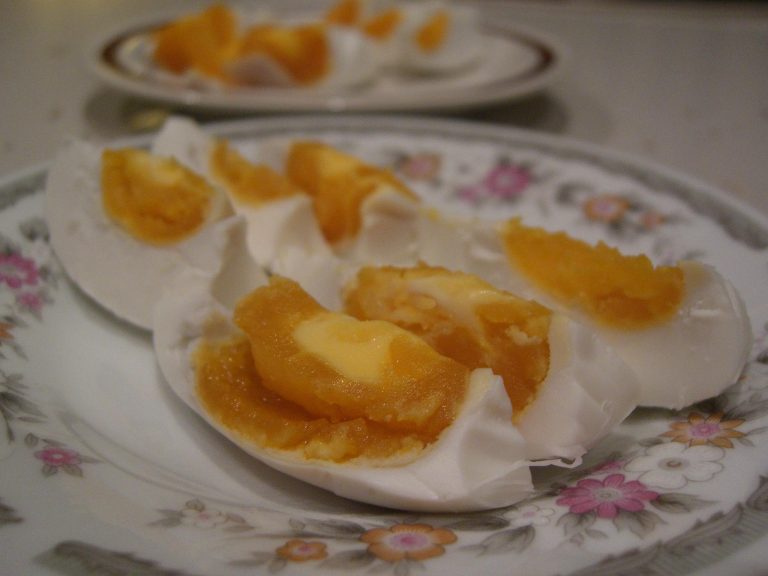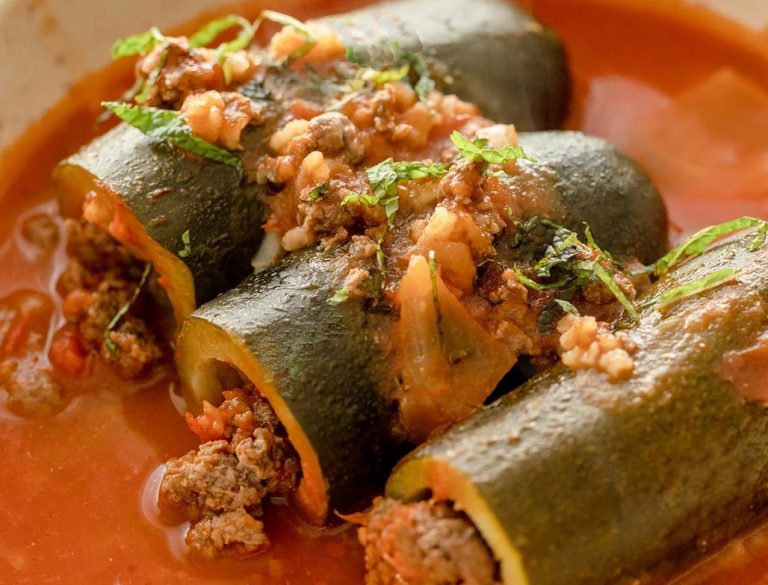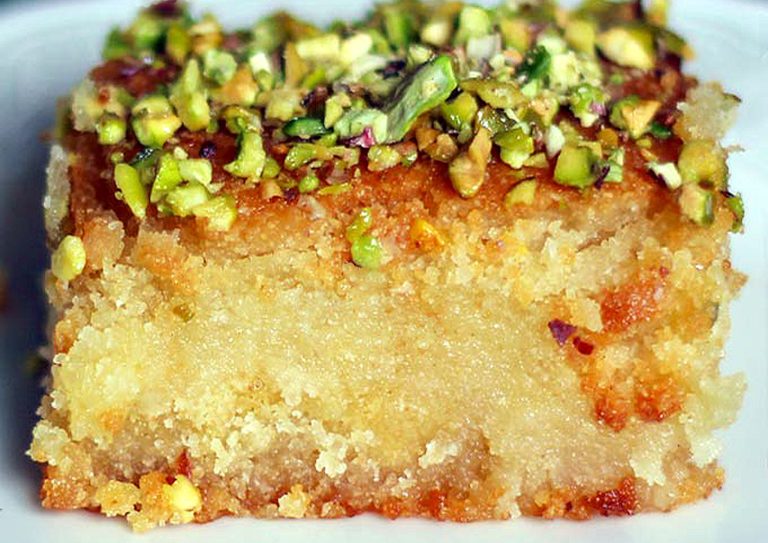Long before the advent of electricity and modern refrigeration, our ancestors discovered natural methods for food preservation. People relied on the sun to dry, microorganisms to ferment, acids to pickle, and honey to preserve. Another notable agent for conservation was salt — for curing. By both drawing out the moisture and creating an acidic condition, salt establishes an environment inhospitable to harmful bacteria, thus considerably prolonging a food’s shelf life.
It’s no wonder that the modern delicacy of salted duck eggs originated in China, where these nutrient-dense poultry products account for about 20 percent of all egg consumption. How long this tradition has endured, however, is fairly wondrous.
No ordinary egg
Instructions on the preparation technique for salted duck eggs are documented in China’s oldest preserved agricultural encyclopedia, dating back to the Northern Wei Dynasty (386-534 AD). Essential Techniques for the Welfare of the People (齊|民|要|術 Qimin Yaoshu) records, in 10 volumes, horticultural, farming and fishing techniques from ancient China, along with methods for storage and preservation of agricultural products.
Early salted duck eggs were made by burying fresh eggs in the salty sand by the seashore. Over a period of time, the saline situation transformed the eggs to be dryer, more flavorful, and longer lasting; so they could provide valuable nutrition on long voyages at sea.

As the moisture is drawn out of the yolks, they become more oily and solid, while the whites remain liquid. The salted duck eggs were often steamed and eaten with rice porridge (congee) or boiled and kept on hand for ready use. The rich yolk earned high regard as a decadent ingredient in specialty foods — like mooncakes, other pastries, and rice dumplings (zongzi).
Success
You are now signed up for our newsletter
Success
Check your email to complete sign up
As salted duck eggs gained popularity throughout Asia, different methods evolved inland to mimic the sandy salt bath. Here we will waddle through what I have learned is the most reliable method for home preservation.
Making salted duck eggs
In the US, duck eggs are much less common than in China, but they can be found. Ducks are delightful birds, and a few daffy and daring individuals take up the challenge of raising them. If you happen to have a neighborhood source, they are likely to look a little frightening at first.
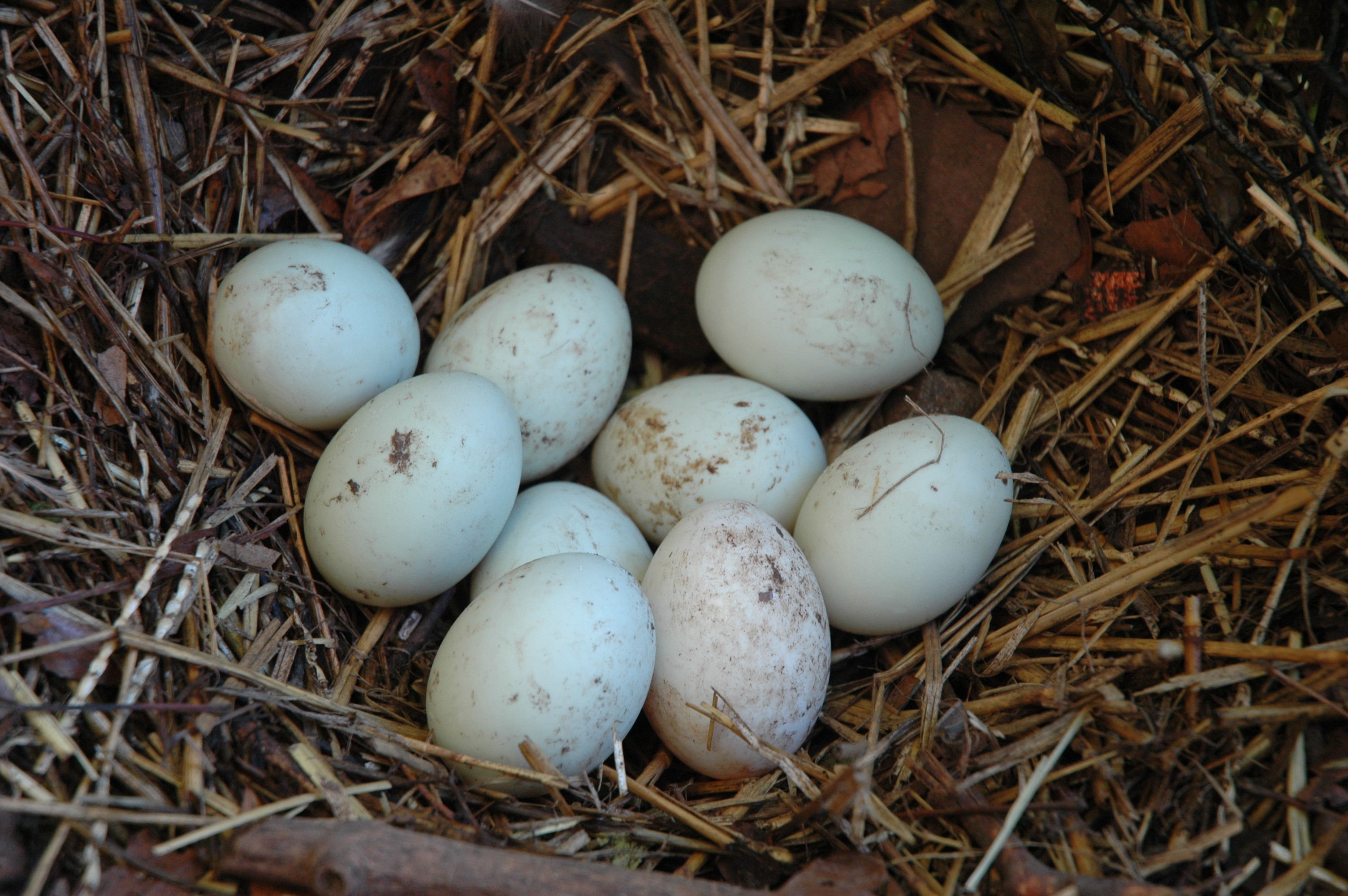
Ducks love water, and their muddy little feet show no respect for the pristine condition of fresh-laid eggs. Washing the eggs should be delayed until processing, however, to avoid removing the natural cuticle, or “bloom” that protects the contents from bacteria.
Whether you have clean eggs from a store or dirty eggs from a neighbor (even chicken eggs can be used in a pinch), start by washing your eggs. Next, set the eggs out to dry in direct, but early morning sun for a few hours, turning them once at half-time.
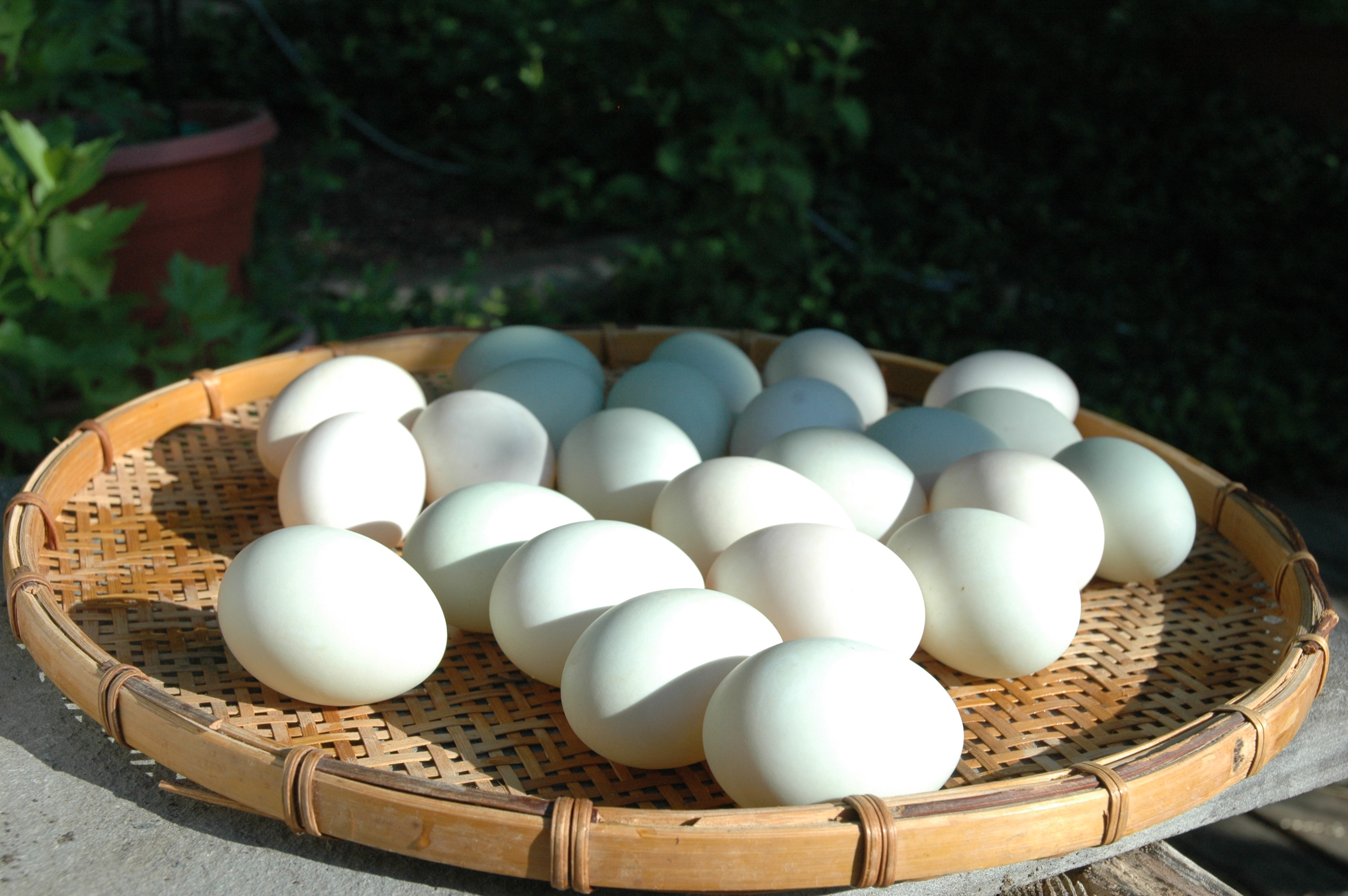
Although it may sound like superstition, this sunbath could be an important step that helps destroy any remaining bacteria on the eggs before processing. Sun from later in the day, however, could heat the eggs so much, or so quickly, that they crack.
What you need
- Fresh duck eggs or chicken eggs (as many as you wish to preserve)
- Enough sea salt to coat the eggs
- Enough alcohol (Chinese cooking wine or vodka) to coat the eggs
- Plastic wrap or a ziplock bag
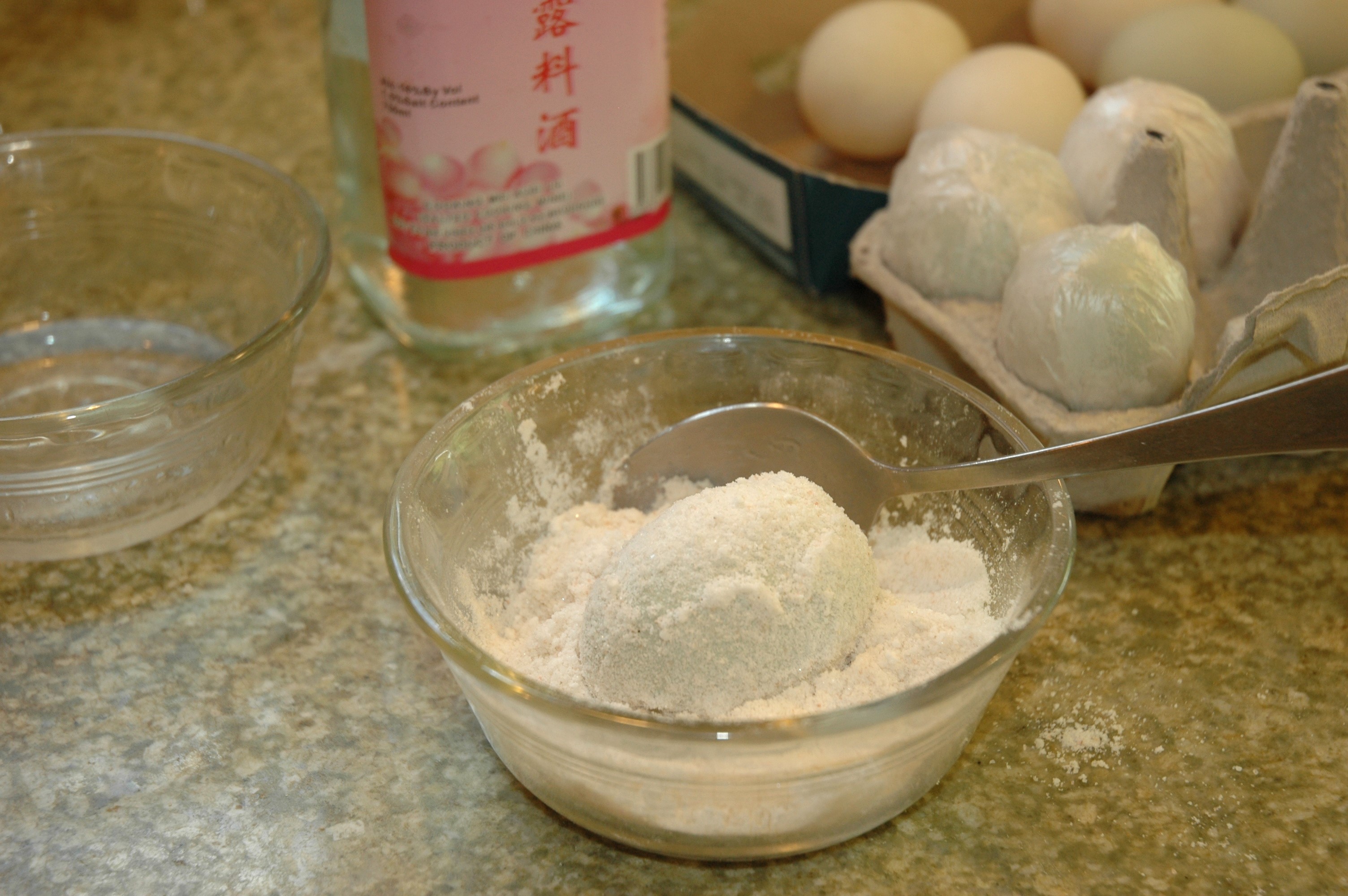
What to do
- Make one small bowl of alcohol and another of salt.
- Dip each egg individually in the alcohol first, followed by a roll in the salt.
- You can carefully place all the salted eggs in a ziplock bag together, or wrap them individually and place them back in a carton. NOTE: If you are using chicken eggs, definitely use the carton. Duck egg shells are much harder and more difficult to damage.
- Store the eggs in a cool, dry place for at least three weeks before testing for doneness.
Are they done?
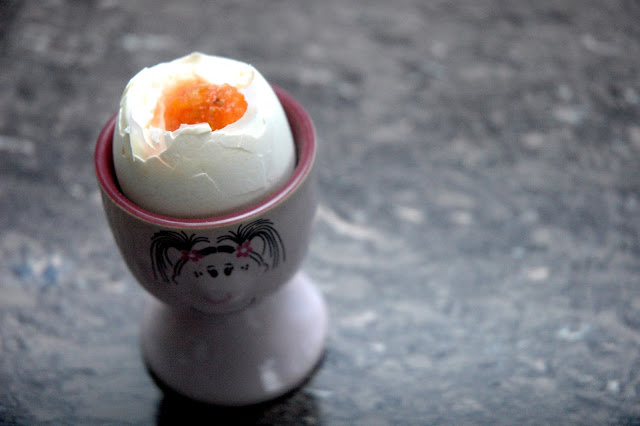
- Between three and four weeks start testing the eggs, by steaming, boiling, or cracking it raw.
- The yolk should be deeper orange, oily, and fairly firm (even when raw).
- The white should have a salty flavor and a slightly creamy texture when cooked.
- When you are satisfied with the outcome, remove the salt by washing the eggs in cool water.
- Pat them dry and they are ready to use, or store for later.
How to eat salted duck eggs
Salted duck eggs can be used in many recipes just like normal eggs — but the yolk will be more firm and rich. Traditional uses include frying in stir-fry, hard or soft boiling with congee, and of course the yolk can be used to make rich desserts for special occasions like Dragon Boat, Mid-Autumn, and New Year festivals.
Try dressing up your western dishes as well — deviled duck eggs, perhaps, or a salted egg salad? In fact, salted duck eggs can be added — boiled and chopped — to almost any fresh salad for added nutrition and flavor. The yolks alone can be steamed, crumbled, and used pretty much like parmesan cheese.
Storing salted duck eggs
Raw salted eggs can be stored in the fridge, or they can be boiled and stored at room temperature for at least a month. If any eggs crack during boiling, consume them first, since they will not keep well.



